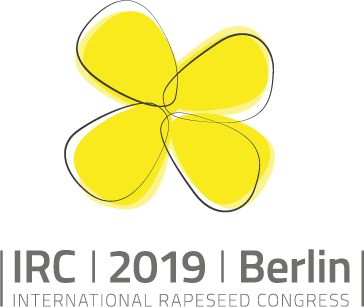
20.06.2019
07:30 |
Start Field Trip North (at the bcc) |
11:30 |
Visit Wariner Pflanzenbau e.G. in Warin |
13:00 |
Bus trip to Wismar |
13:30 |
Ferry trip to Poel Island, Lunch aboard |
| 15:00 | Visit NPZ Breeding Station in Malchow/Poel |
| 18:15 | Check-in Hotel |
| 19:30 | Dinner at NPZ in Malchow/Poel |
| 21:00 | Return to the Hotel |
21.06.2019
08:00 |
Check-out Hotel |
|||
09:30 |
Visit NPZ Innovation GmbH in Groß-Luesewitz |
|||
| Visit JKI Institute in Groß-Luesewitz | ||||
| 12:00 | Lunch at JKI Institute | |||
| 13:00 | Bus trip to Berlin | |||
| Afternoon/Evening: Departure of participants from Berlin Airports |
||||
| Fee (19 % VAT inclusive): EUR 190.00 | ||||
This field trip takes participants to the German Baltic Sea coast. Along with field visits to Wariner Pflanzenbau e.G. in Warin and the two NPZ facilities in Malchow/Poel and Groß-Luesewitz (all in Mecklenburg-Western Pomerania), a trip to the Julius Kühn Institute for Breeding Research on Agricultural Crops is also scheduled.

NPZ has a 120-year tradition of breeding a wide range of crops. Today the NPZ successfully breeds rape, turnip, red clover, grass species, winter wheat, oats and potatoes; the local breeding unit has specialized in the cultivated species winter rape, summer rape, field beans, grain peas and forage plants. In addition to classical crossbreeding of selected parent components, modern plant breeding also draws on biotechnology. At the Groß Lüsewitz site alone, the NPZ has approx. 500 m² of greenhouse capacity for cultivation of plant material as well as a 65-hectare experimental area for breeding gardens and performance tests.
Source: Gerlinde Nachtigall/JKI
The Julius Kühn Institute (Federal Research Centre for Cultivated Plants) focuses on research into the genetic diversity of plant genetic resources for food and agriculture. Topics addressed during this visit will include scope to harness this genetic potential in developing sustainable agriculture and ways to preserve this potential for the future.




